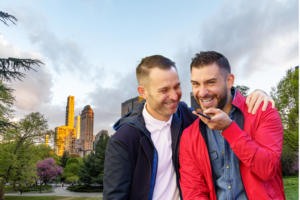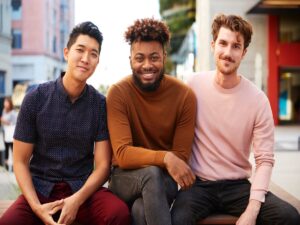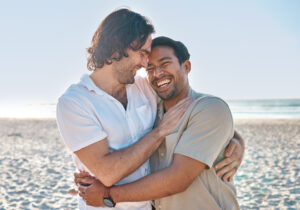Gay marriage counseling in NYC offers specialized support for LGBTQ couples, addressing unique challenges and enhancing relationship dynamics.
Imagine two people in love, yet somehow lost in the very thing that once brought them together. For LGBTQ couples, love isn’t just about connection–it’s about the world that hasn’t always understood them.
Maybe you’ve felt it, too. The subtle ways society treats your relationship differently. The unspoken pressures. The lingering wounds from a world that hasn’t always been kind. Even the best partnerships face struggles. But for gay couples, those challenges can come with extra layers. Family expectations, cultural biases, or simply the weight of being seen as “different” are among them.
That’s where gay marriage counseling isn’t just therapy—it can reinvent your relationship.
In this article, we’ll pull back the curtain on what LGBTQ-focused couples counseling really looks like. You’ll learn how it goes beyond traditional therapy. It’s designed for the nuances of same-sex relationships. It can also help you build something stronger than love alone: resilience and passion. You can have a relationship that thrives on its own terms.
Key Takeaways
✅ Gay marriage counseling is not one-size-fits-all—it’s designed to address the unique challenges of LGBTQ couples, from trust issues to communication breakdowns.
✅ Research shows therapy works—couples who engage in LGBTQ-focused counseling report higher relationship satisfaction and deeper emotional connection.
✅ Online therapy is just as effective—scientific studies confirm that virtual sessions can be as transformative as in-person therapy, providing flexibility and privacy.
Understanding Gay Marriage Counseling
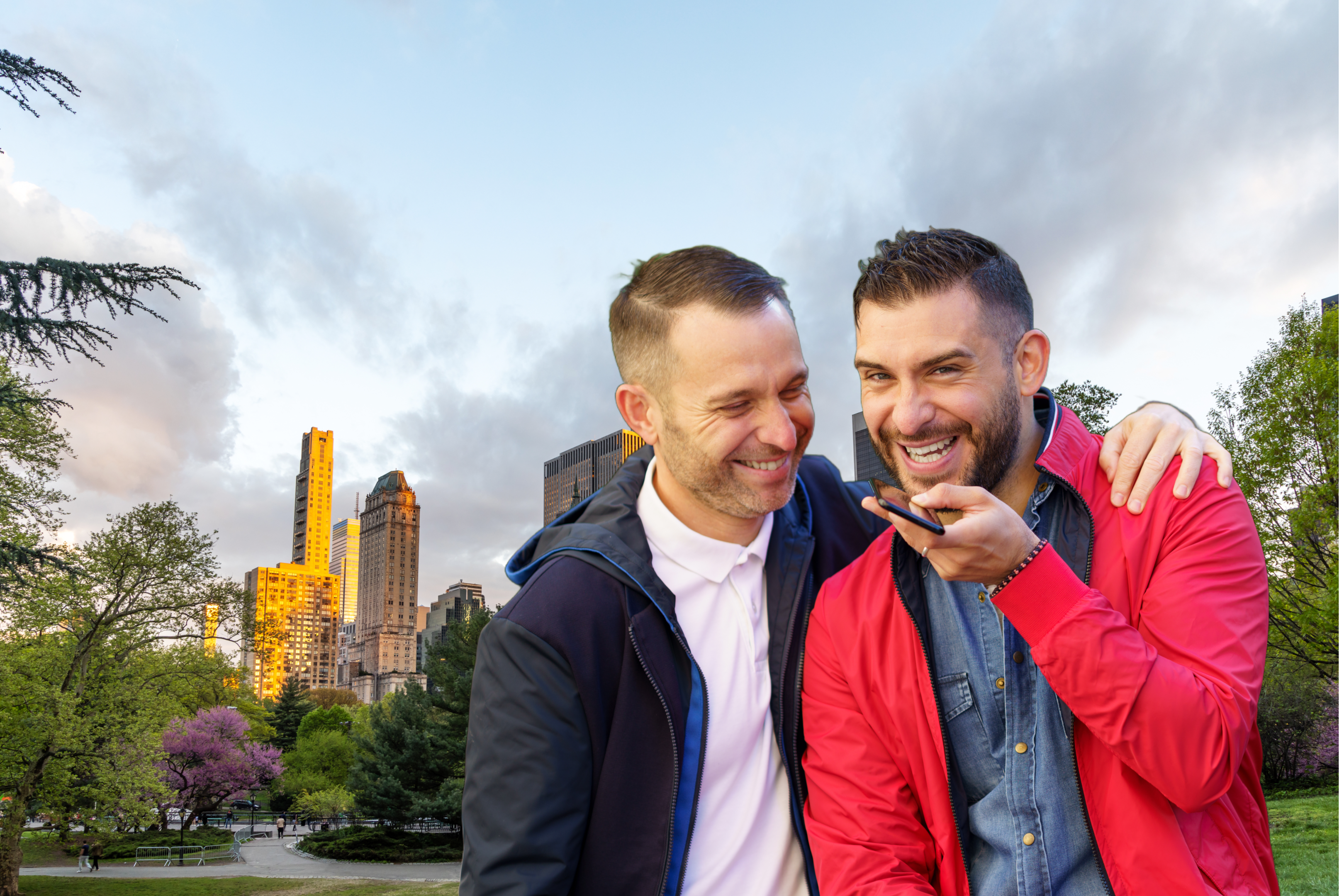
Let’s be honest—relationships are already a wild ride. Now add in societal expectations, family pressures, and the occasional awkward moment when a waiter assumes you’re just “really good friends.” LGBTQ couples face a unique set of challenges, and that’s where gay marriage counseling comes in—not as a generic, one-size-fits-all solution, but as a tailored approach that gets the nuances of same-sex relationships.
Think of it as relationship fine-tuning with someone who actually understands the distinct dynamics at play. Whether it’s navigating family expectations, unpacking internalized messages from a world that hasn’t always been kind, or figuring out why your partner’s “good morning” texts went from novels to Morse code, therapy offers a space to explore these complexities with clarity and humor.
Unlike traditional couples therapy, which often assumes heteronormative roles, LGBTQ-focused counseling acknowledges the real experiences of same-sex partners. It’s about strengthening emotional bonds, fostering open conversations, and helping couples develop strategies that actually resonate with their reality. No forced gender roles, no outdated assumptions—just a therapist who understands that your relationship doesn’t need to fit into a traditional mold to be meaningful.
At its heart, gay marriage counseling is about creating deeper understanding and connection, helping couples navigate love in a world that’s still catching up. And let’s be real—sometimes, having an objective third party remind you that “leaving wet towels on the floor” isn’t actually a personality flaw can work wonders.
The Importance of Affirmative Therapy in Gay Marriage
Relationships are complicated enough without feeling like you have to explain your existence to your therapist. That’s where affirmative therapy comes in—think of it as the VIP section of therapy, exclusively designed for LGBTQ couples. No awkward moments, no “so which one of you is the man in the relationship?” nonsense—just a space where you and your partner are understood from the start.
Affirmative therapy isn’t just about nodding supportively while you talk—it’s about actively enhancing communication, decoding relationship patterns, and strengthening your bond in ways that make sense for same-sex partnerships. Your therapist isn’t there to “accept” your identity; they already do. Instead, they’re focused on helping you navigate challenges, amplify strengths, and build the kind of connection that makes rom-coms jealous.
Within this affirming space, you get to express your needs, desires, and frustrations without the fear of being misunderstood or judged. Whether you’re working through external pressures, internalized messages, or the real relationship tests (like assembling IKEA furniture together), affirmative therapy ensures your relationship gets the respect and support it deserves.
Addressing Unique Relationship Challenges
New York City—where dreams are made, rent is absurd, and LGBTQ couples juggle relationship dynamics with the added weight of societal pressures. Whether it’s the subtle (or not-so-subtle) judgments from coworkers, the complexities of chosen family structures, or the relentless pace of city life, same-sex couples often face challenges that can test even the strongest partnerships. And let’s not forget the ultimate relationship test: navigating a tiny apartment together without losing your mind.
Couples therapy provides a judgment-free zone where you and your partner can unpack these challenges—whether that means figuring out how to balance demanding careers, setting boundaries with family, or working through the stressors that sometimes show up as anxiety, depression, or “why do you never text back?” syndrome.
At its core, couples therapy helps LGBTQ couples build stronger emotional connections by improving communication, fostering self-assertion, and breaking old patterns that might be holding you back. It’s about giving your relationship the tools to thrive, not just survive—because love in the city should be more than just splitting takeout and surviving the subway together.
Benefits of Gay Marriage Counseling

LGBTQ couples seek therapy for all kinds of reasons—some universal, some unique to same-sex relationships. Whether you’re looking to communicate better, resolve conflicts without reenacting a courtroom drama, or rebuild trust after a rough patch, gay marriage counseling offers a space to strengthen your relationship in ways that truly fit your dynamic.
Creating an emotionally safe space is key. Without it, therapy is just another awkward conversation—but with it, real change happens. Let’s break down some of the biggest benefits.
Enhancing Communication Skills
Ever feel like you and your partner are speaking different languages—even when you’re both using full sentences? That’s where therapy comes in. LGBTQ couples counseling teaches practical communication strategies to help minimize misunderstandings and create a safe space to express feelings without fear of judgment (or a defensive comeback).
Take Alex and Jordan, for example. They came to therapy stuck in a cycle of repeating the same arguments, feeling unheard, and wondering if their texts were getting lost in a black hole. Through therapy, they learned techniques that cut down their conflicts and helped them connect more deeply—turns out, active listening is more powerful than waiting for your turn to talk.
When couples master emotional expression, they don’t just avoid fights—they build the kind of connection that keeps relationships thriving for the long haul.
Conflict Resolution Techniques
No relationship is 100% conflict-free (and if it is, someone’s probably repressing something). The issue isn’t whether couples argue—it’s how they argue.
Couples therapy gives LGBTQ couples the tools to navigate disagreements without turning them into emotional battlegrounds. Instead of sweeping things under the rug (where they’ll eventually trip you up), counseling helps couples develop real, productive ways to work through issues.
As couples therapists, we coach couples on honest communication, emotional regulation, and the art of arguing without making it a personal attack. Whether it’s navigating family pressures, career stress, or “who left the fridge open again,” the goal is to turn conflict into an opportunity for connection, not division.
Building Trust and Intimacy in Gay and Lesbian Relationships
Trust in a relationship is like a houseplant—you can’t just water it once and hope for the best. It takes consistent care, attention, and the occasional rescue mission when things start wilting. For gay and lesbian relationships, trust can be especially delicate, shaped by unique experiences, external pressures, and past challenges that may still linger beneath the surface.
That’s where affirmative therapy comes in. It’s not just about talking through problems—it’s about actively strengthening the bond between partners, helping them rebuild trust, and reigniting intimacy in meaningful ways. In fact, research shows that about three-quarters of same-sex couples who engage in LGBTQ+ counseling experience a deeper sense of closeness—a testament to the power of intentional relationship work.
A Safe Space for Gay and Lesbian Relationships
For gay couples, trust issues can stem from many sources—past betrayals, societal pressures, or even internalized messages that make emotional vulnerability feel risky. Therapy provides a secure environment where same-sex couples can address these challenges without fear of judgment. It’s a place where partners can talk openly, listen actively, and work toward healing in a way that feels authentic and safe.
When gay men or lesbian couples struggle with mental health concerns like anxiety, depression, or past relationship trauma, these issues can naturally affect their ability to trust and connect. Counseling helps couples identify patterns that may be holding them back and develop new ways to engage with each other—ways that feel supportive, affirming, and rooted in real emotional safety.
Reigniting the Spark
Sometimes, the hardest part of a relationship isn’t just maintaining trust—it’s keeping the emotional and physical connection alive. For many gay and lesbian relationships, therapy offers a structured way to rediscover intimacy, whether that means overcoming mental health challenges, improving communication, or simply carving out space to nurture the relationship amid life’s chaos.
Every couple has a unique story, and therapy isn’t about forcing a generic solution—it’s about customized, affirming strategies that fit the specific needs of gay couples. With the right support, same-sex couples can rebuild trust, strengthen their emotional bond, and create a relationship that feels both secure and deeply fulfilling.
Choosing the Right Therapist for Gay Marriage Counseling
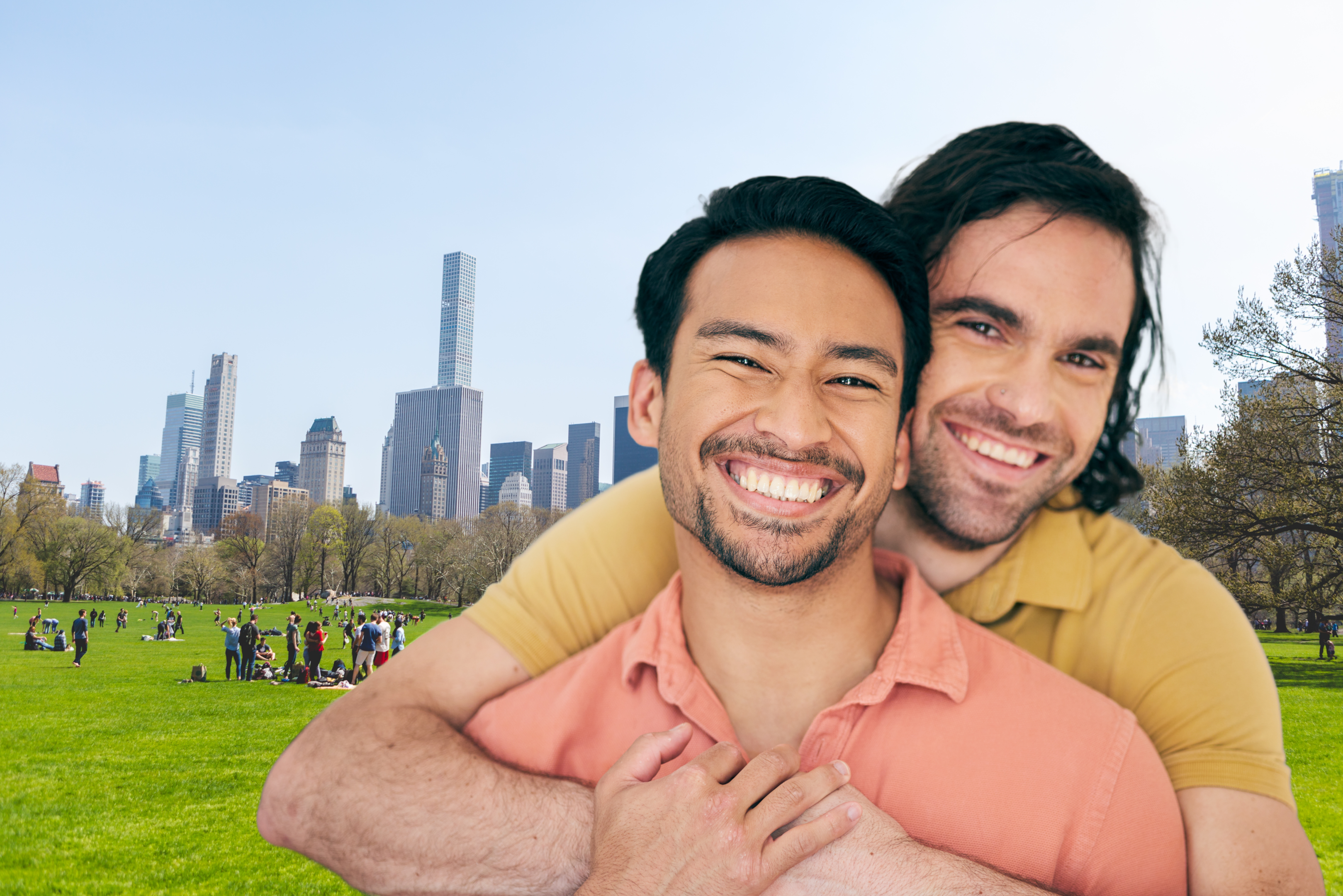
Finding the right therapist for gay couples therapy isn’t just about credentials—it’s about finding someone who gets your relationship. Think of it like picking the perfect dance partner. You need someone in sync with your needs, who won’t step on your toes, and who knows how to lead without dominating the conversation.
A therapist who specializes in gay couples therapy understands the unique dynamics of same-sex relationships. They including the external pressures, internal conflicts, and mental health concerns that can shape a couple’s experience. The best therapists provide a judgment-free, culturally competent space where partners can engage in open, meaningful conversations without feeling like they have to educate their counselor on LGBTQ+ issues.
Qualities to Look For in a Therapist
The success of couples therapy doesn’t just depend on technique—it depends on compatibility between the couple and their therapist. Think of it this way: even the best relationship advice will fall flat if it’s coming from someone who doesn’t truly understand your lived experiences.
When choosing a therapist, gay couples should consider:
✅ Specialization in LGBTQ+ relationships – not just a checkbox, but deep expertise.
✅ A neutral, nonjudgmental approach – therapy should feel like a safe space, not a lecture.
✅ A style that resonates with both partners – if one partner feels unheard, progress will stall.
Some counseling centers, like the Gay Couples Therapy, offer initial complimentary phone consultations to match couples with LGBTQ+-focused therapists. This ensures that partners connect with someone who aligns with their goals and understands the nuances of gay couples therapy from the outset. All of our therapists at Loving at Your Best specialize in LGBTQ couples.
Not all couples therapy is created equal. An effective therapist isn’t just someone who checks a “LGBTQ+ friendly” box on their website—they should have the training, cultural competency, and experience to navigate the complexities of gay relationships with confidence and care.
Travis Atkinson is a Certified Gottman Method Couples Therapist. H and Certified Emotionally Focused Therapist, has spent over 27 years helping couples thrive. Another expert, Jon Prezant, brings a deep understanding of intimacy and passion as a sex therapist specializing in gay men and same-sex couples. When a therapist has both professional expertise and personal insight into gay relationships, they’re better equipped to help couples reignite their connection and resolve conflicts with strategies that actually work.
Finding an LGBTQ+ Friendly Therapist
Looking for a gay couples therapy provider can sometimes feel like searching for a good espresso in a diner—it’s possible, but not always easy. The good news? Many therapists offer free consultations, giving couples a chance to gauge whether they feel comfortable before committing to ongoing sessions.
For couples seeking more discretion, online therapy offers an extra layer of privacy—you can discuss relationship challenges from the comfort of your own space, without the added stress of a commute or waiting-room awkwardness.
A therapist specializing in gay couples therapy isn’t just there to address problems—they help foster personal growth, strengthen relationships, and tackle mental health challenges in a way that makes sense for same-sex couples. Couples therapy is about more than conflict resolution—it’s about building a relationship that thrives, grows, and deepens over time.
Approaches and Techniques in Gay Marriage Counseling
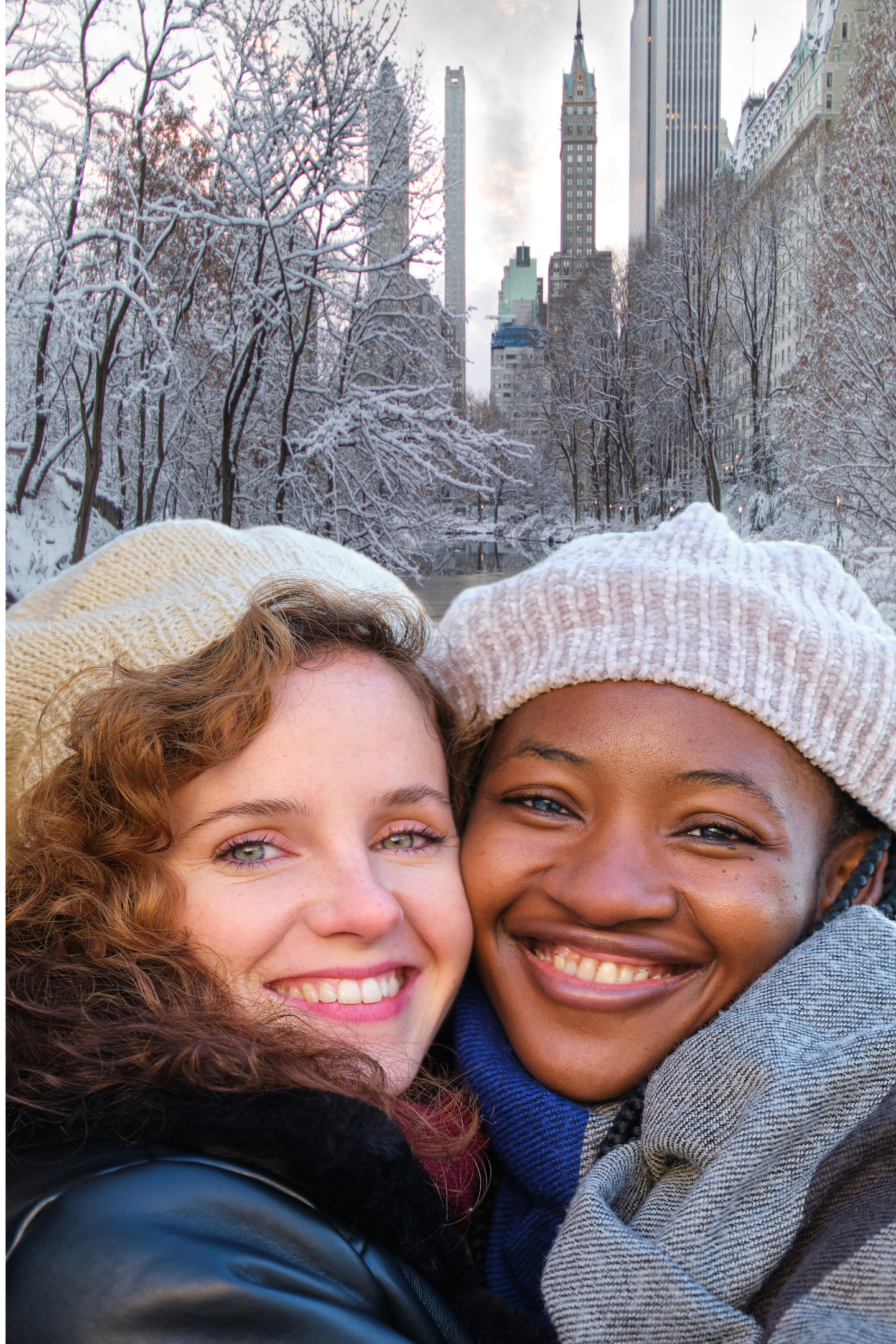
Therapy isn’t a one-size-fits-all solution—what works for one couple might not work for another. In gay marriage counseling, different methods help address communication issues, deepen connection, and build a unique bond between partners. The key is finding the preferred approach that aligns with your therapeutic goals and relationship dynamics.
Let’s explore some of the most effective strategies used in counseling for LGBTQ clients in New York City.
Emotionally Focused Therapy (EFT): Strengthening Emotional Bonds
Think of Emotionally Focused Therapy (EFT) as the emotional glue that helps couples reconnect. Developed by the late Dr. Sue Johnson and Dr. Leslie Greenberg, EFT focuses on deepening emotional attachment, rebuilding trust, and transforming negative interaction cycles into patterns of connection and support.
This approach is particularly effective for same-sex couples working through intimacy struggles, recovering from past betrayals, or managing external pressures that affect their relationship. Research shows that 70% of couples who engage in EFT recover from relationship distress, making it an excellent choice for LGBTQ individuals looking to strengthen their bond.
A major milestone in EFT’s application to gay and lesbian relationships was the development of the first-ever EFT training video for treating same-sex couples. As a therapist specializing in LGBTQ couples, I had the privilege of working directly with the late Dr. Sue Johnson to create this groundbreaking resource, ensuring that couples therapists worldwide could better serve gay and lesbian couples using EFT. This video marked a significant step in bringing LGBTQ-focused techniques into mainstream couples therapy.
For gay couples navigating relationship complexities in New York City, EFT provides a holistic approach to healing—one that emphasizes emotional safety, vulnerability, and deeper connection. By addressing the underlying emotional needs of each partner, EFT helps couples move beyond conflict and rediscover the closeness that first brought them together.
Gottman Method Couples Therapy: A Results-Oriented Approach
The Gottman Method is like relationship engineering—structured, research-based, and highly practical. Unlike EFT, which focuses on emotions, the Gottman Method takes a results-oriented approach, breaking down what makes relationships work (and what makes them fall apart).
Developed from over 35 years of research, this method helps partners increase respect, affection, and closeness while learning conflict resolution skills that actually stick. It’s particularly effective for couples dealing with long-term communication issues, recurring conflicts, or emotional disconnection.
Travis Atkinson, one of the first Certified Gottman Method Couples Therapists since 2006, spent eight years working directly with the Gottman Institute in Seattle, training alongside Drs. John and Julie Gottman. His expertise in this method makes him a go-to therapist for LGBTQ couples in New York City, particularly in neighborhoods like the West Village and the Upper West Side.
Sessions typically begin with two to three assessment meetings, followed by weekly therapy aimed at breaking negative cycles and building a healthier, more connected relationship. For LGBTQ couples seeking real change, this method provides an effective roadmap toward lasting improvement.
Imago Therapy vs. Gottman Method: Different Roads to Connection
While Imago Therapy focuses on understanding childhood wounds and how they affect relationships, the Gottman Method is more structured and research-driven, designed to teach practical skills for improving communication and conflict resolution.
For LGBTQ clients, the best choice depends on their unique relationship history—some may benefit from exploring past emotional triggers (Imago Therapy), while others may prefer the actionable, science-backed strategies of the Gottman Method.
Cognitive Behavioral Therapy (CBT): Strengthening Relationships Through Thought and Action
Think of Cognitive Behavioral Therapy (CBT) as a mental workout for your relationship—one that helps you and your partner break free from unhelpful thought patterns that might be holding you back. By restructuring negative thinking habits, couples can improve communication, increase emotional connection, and develop healthier ways of managing conflict.
With its unique benefits, CBT is particularly effective for LGBTQ individuals, as it provides a structured and results-driven approach to tackling relationship challenges. Many couples find that one partner may struggle with persistent doubts, fears, or past relationship baggage that impacts the relationship as a whole. CBT helps queer individuals and couples increase self-awareness, identify unhelpful thinking patterns, and replace them with more constructive perspectives.
As someone who has been practicing CBT since the start of my career, I founded and have directed Advanced Cognitive Therapy of New York since 1995, bringing extensive experience in helping couples navigate a diverse range of relationship struggles. I integrate a holistic approach to CBT, ensuring that couples don’t just change their thoughts but also take meaningful action to build a stronger, healthier partnership.
CBT’s unique dynamics make it particularly effective for members of the LGBTQ community facing challenges such as internalized messages, stress from societal expectations, or difficulties with emotional regulation within their relationships. By addressing these thought patterns head-on, partners can develop new, more adaptive ways of thinking and interacting, ultimately fostering deeper trust and emotional security.
Finding the Right Therapy for Your Relationship
Whether you’re seeking therapy on the Upper West Side or prefer online sessions from the comfort of your home, the ultimate goal is to strengthen your relationship, improve communication, and foster personal growth—both as individuals and as a couple.
Therapy doesn’t just help you solve conflicts—it helps you become your best self within the relationship. One partnermight need more emotional reassurance, while the other may struggle with expressing their needs—the right therapy approach helps bridge those gaps.
For gay men, lesbian couples, and all members of the LGBTQ community, having a therapist who understands the nuances of same-sex relationships can make all the difference. With the right approach, therapy can enhance well-being, deepen trust, and create a more fulfilling partnership.
Overcoming Common Issues in Gay Marriages

For gay couples in New York, relationships often come with a unique set of challenges—some shared with heterosexual couples, others distinct to the LGBTQ experience. Whether it’s societal pressure, family rejection, or navigating the complexities of open relationships, these challenges can place strain on even the strongest partnerships.
This is where gay couples therapy plays a vital role. It provides a judgment-free space where partners can openly discuss their sexual orientation, gender identity, and relationship struggles while working toward enhancing connection and breaking down communication barriers. Through LGBTQ couples counseling, partners can feel heard, develop deeper understanding, and create strategies that foster a healthier, more resilient relationship.
Let’s explore some of the most common concerns gay couples face and how couples therapy can help.
Dealing with External Stressors
Even in a progressive city like New York, gay couples can still experience societal rejection, workplace discrimination, or disapproval from family members. These stressors often seep into interpersonal relationships, creating tension, self-doubt, and emotional distance.
LGBTQ couples counseling provides a safe, affirming environment where partners can openly process their emotions. Therapy helps couples develop coping strategies for handling external pressures, whether it’s navigating workplace bias, managing family dynamics, or overcoming internalized homophobia.
One of the biggest protective factors against external stress is community support. Therapy helps partners strengthen their relationship while fostering connections within the LGBTQ community, reinforcing the idea that they are not alone in their struggles.
Navigating Open Relationships
For some gay couples in New York, an open relationship or non-traditional partnership structure can be a fulfilling and healthy choice—but without clear agreements and open communication, misunderstandings and emotional pain can arise.
Gay couples therapy plays a critical role in helping partners set clear boundaries, define their expectations, and develop honest, ongoing dialogue about their relationship structure. When one partner feels unsure about an open dynamic, therapy can provide a neutral space to explore concerns, address communication barriers, and feel heardwithout judgment.
Additionally, therapy helps couples unpack internalized homophobia and social stigma surrounding non-monogamy, ensuring that relationship decisions are based on mutual desire rather than external pressures. By focusing on self-awareness, emotional honesty, and trust, therapy allows couples to build a foundation that supports their unique relationship structure.
The Role of LGBTQ Couples Counseling
From navigating gender identity and sexual orientation to working through mental health struggles and relationship roadblocks, couples counseling is an essential tool for LGBTQ partners in New York. Whether the goal is strengthening communication, working through external stress, or redefining relationship boundaries, therapy offers a structured and supportive path forward.
With the right therapist, LGBTQ individuals can cultivate a stronger, more fulfilling relationship—one that honors their identity, fosters emotional security, and creates lasting connection.
Infidelity and Trust Issues: Can Gay Couples Therapy Help You Rebuild?
Infidelity in gay couples isn’t always black and white. What counts as cheating? For some, it’s emotional; for others, it’s physical. And for gay couples in alternative relationship structures, the boundaries of trust can be even more nuanced. The truth? Betrayal isn’t just about sex—it’s about secrecy, broken agreements, and emotional disconnection.
But can you actually rebuild after infidelity? Yes, if you know how.
At Loving at Your Best Gay Couples Therapy, we use a tailored, science-backed approach to help couples heal, rebuild trust, and redefine intimacy after betrayal. Using the Gottman Method, we guide couples through a structured three-stage process to:
✅ Process the pain—so both partners feel heard
✅ Understand what led to the betrayal—without shame or blame
✅ Rebuild connection and prevent future trust violations
It’s not just about forgiving and forgetting—it’s about understanding, repairing, and strengthening your romantic relationship in ways you never imagined possible.
🔹 Want the full breakdown of how we help LGBTQ couples recover from infidelity? Read our latest blog, where we uncover the step-by-step process of rebuilding trust through couples therapy and tackling relationship issues in LGBTQ couples counseling.
Online vs In-Person Gay Marriage Counseling
Selecting therapy options presents a crucial decision for LGBTQ+ couples, who must weigh the benefits of online versus in-person sessions to receive support. The advantage of online therapy is that it removes travel demands and offers increased privacy and adaptability.
Platforms such as GayCouplesTherapy.com facilitate virtual therapy sessions, enhancing accessibility by making it easier for couples to consistently engage in regular appointments. Ultimately, whether they choose online or face-to-face meetings depends on individual preferences and logistical factors.
The Benefits of Online Gay Couples Therapy: Is It As Effective As In-Person?
For many gay couples struggling with relationship issues, therapy can feel like an overwhelming commitment. Between packed schedules, the stress of finding the right therapist, and concerns about privacy, it’s no surprise that many couples delay seeking help—even when their relationship needs it most.
But what if getting expert guidance was as simple as opening your laptop?
At Loving at Your Best Gay Couples Therapy, we offer virtual therapy sessions specifically designed for LGBTQ couples—providing the same science-backed support without the hassle of commuting to an office.
And here’s the best part: Research confirms that online couples therapy is just as effective as in-person therapy, with some studies even showing superior outcomes in key areas.
Does Online Gay Couples Therapy Really Work? Science Says Yes.
If you’re skeptical about online gay couples therapy, you’re not alone. Many couples wonder if virtual sessions can truly help them work through their relationship issues the same way in-person therapy can.
But here’s what the latest research tells us:
🔹 A 2024 study published in the Journal of Marital and Family Therapy found that the Gottman Seven Principles program improved couples’ relationships equally in both in-person and online formats. This suggests that the effectiveness of therapy depends more on the techniques used than on whether sessions take place in a physical office or via video (Gottman & Silver, 2024).
🔹 Another 2024 study on married couples found that teletherapy was as effective as in-person therapy in improving relationship satisfaction and intimacy. While in-person therapy led to a slightly faster development of the therapist-client connection, online therapy eventually reached the same levels of effectiveness (Mark et al., 2024).
🔹 A meta-analysis of 57 studies over two decades concluded that online and in-person couples therapy show no significant difference in success rates, reinforcing that virtual therapy is a powerful tool for relationship healing (Lehmiller et al., 2024).
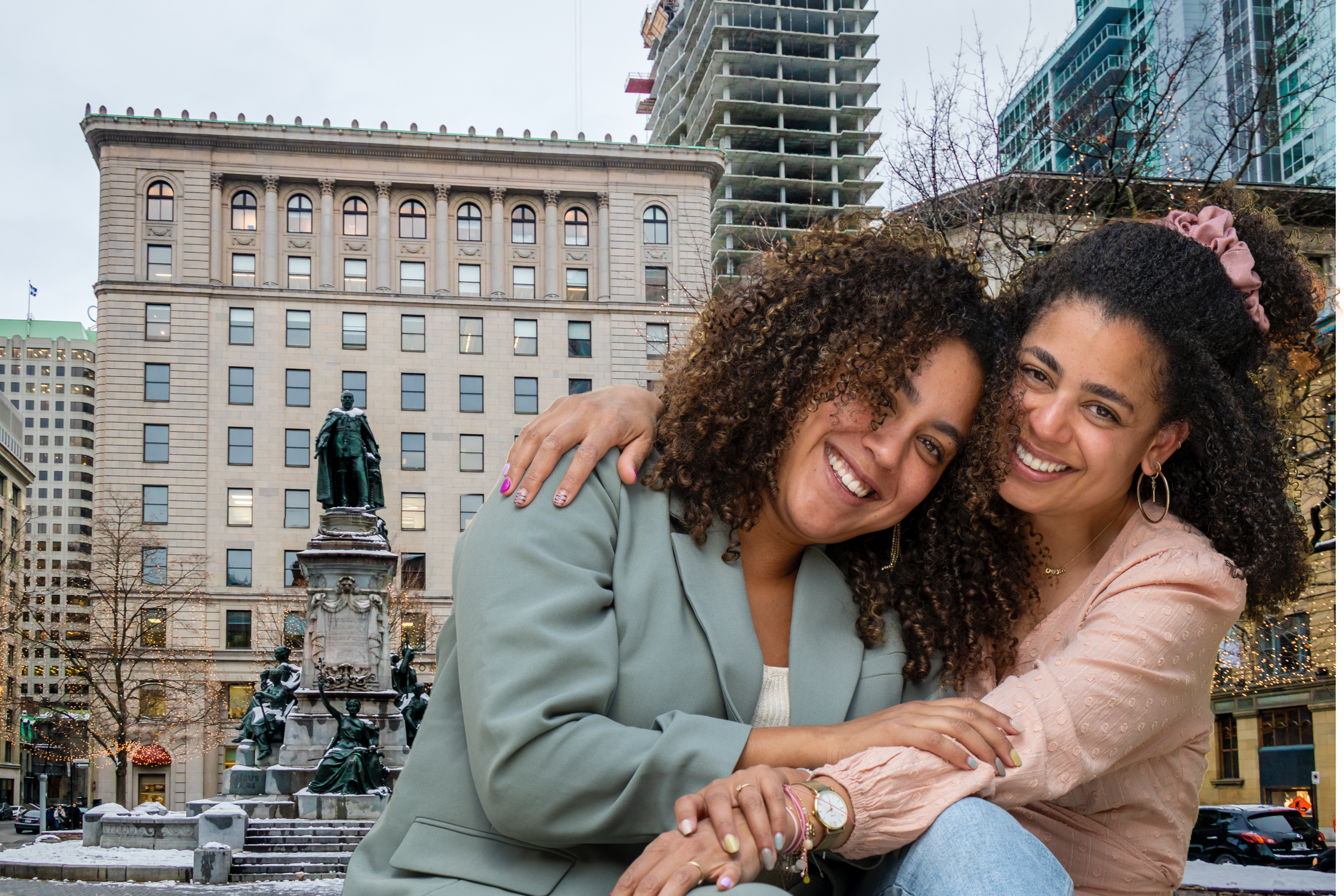
What I’ve Learned From Nearly 30 Years of Working With Gay Couples
In my own experience as a couples therapist working with gay couples for nearly 30 years, I have found online couples therapy to be just as effective as in-person therapy—if not more so in some cases.
Here’s why:
✅ Convenience Equals Consistency: For New York couples juggling demanding careers and personal commitments, the time saved by avoiding a long commute makes it much easier to maintain a regular therapy schedule. And in my experience, consistency is one of the most important factors for success—especially for distressed couples.
✅ Highly Distressed Couples Can Thrive in Online Therapy: Some assume that high-conflict couples may do worse in virtual sessions, but that hasn’t been my experience. I have found that when online therapy is done correctly, it provides the same safe, structured environment that in-person therapy offers—allowing even the most distressed couples to make meaningful progress.
✅ Technology Enhances Observations: Many therapists struggle with virtual sessions because they aren’t comfortable with technology—but I embrace the latest tools to maximize results. In fact, I’ve found that being able to see partners up close on-screen allows me to observe microexpressions and subtle emotional shifts even more clearly than I could in person.
Why More LGBTQ Couples Are Choosing Online Therapy
The research is clear: online couples therapy works. But why are so many gay couples making the switch?
Here are some of the biggest advantages:
✅ Ease of Access: No need to worry about commutes, parking, or therapist availability in your area—get expert support from the comfort of home.
✅ More Privacy: Some couples feel uncomfortable walking into a therapist’s office or worry about being seen by someone they know. Online therapy removes that barrier.
✅ Comfort & Safety: Discussing relationship issues can be vulnerable. Many couples feel more at ease opening up in a familiar environment rather than a therapist’s office.
✅ Flexibility: Whether you live in a bustling city like New York or a quieter location, online therapy gives you more scheduling options—making it easier to commit to regular sessions.
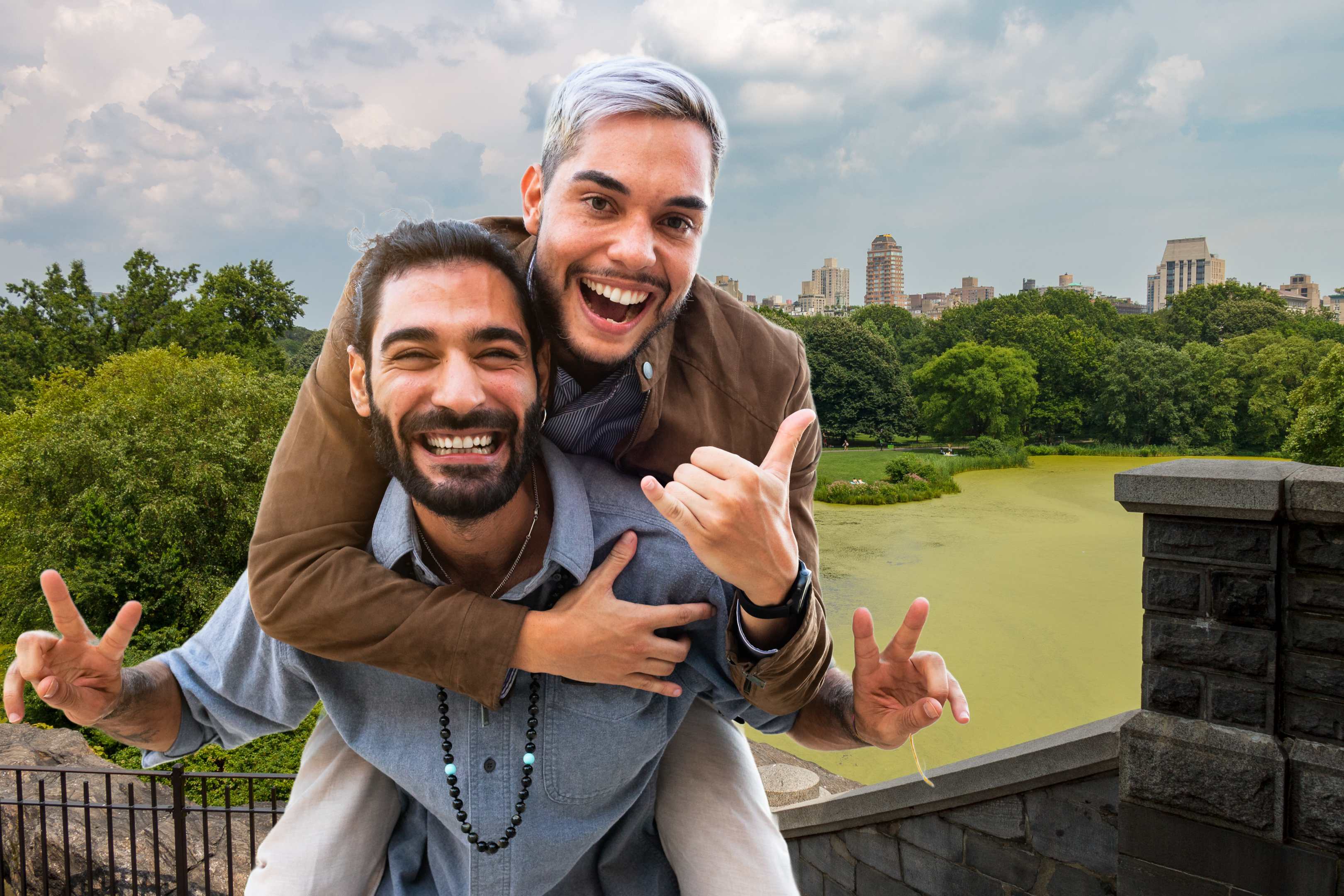
When Is Online Therapy the Best Choice?
While online therapy is effective for many couples, some factors may influence its success:
✅ Online therapy is ideal if:
-
You have a busy schedule and want flexibility.
-
You prefer privacy and discretion while discussing personal issues.
-
You and your partner want the ability to connect closely without external distractions.
-
You appreciate the convenience of a familiar environment (your home) to feel emotionally safe.
✅ In-person therapy is ideal if:
-
You enjoy physically being in an office setting for structure and routine.
-
You lack a quiet, private space at home or at your office for virtual therapy sessions.
-
You find that committing to an in-person visit increases your accountability.
Want to Learn More? Get Exclusive Insights!
Curious about the latest research on online therapy? Want to know the key factors that make virtual therapy successful?
Subscribe to our email newsletter, eTips, for an upcoming in-depth blog where we break down:
🔹 The most common relationship issues that online therapy helps resolve
🔹 What every couple should know before starting gay couples therapy
🔹 How to maximize success in virtual sessions
💌 Sign up today and be the first to access expert insights from Loving at Your Best Gay Couples Therapy!
Final Thoughts: The Future of Gay Couples Therapy is Online
With research-backed evidence proving its effectiveness, online gay couples therapy is a powerful, accessible, and convenient option for those struggling with relationship issues.
At Loving at Your Best Gay Couples Therapy, we bring science-backed, LGBTQ-focused expertise directly to you—whether you’re doing a session online from New York, Vermont, New Jersey, Massachusetts, or anywhere one of our gay couples therapists is licensed.
Ready to take the next step toward healing your relationship? Schedule a virtual session today and start your journey toward deeper connection and trust.

Real-Life Success Stories: How Gay Couples Therapy Transforms Relationships
Every couple faces relationship issues, but the difference between staying stuck and growing stronger together often comes down to seeking the right support. Gay couples therapy isn’t just about resolving conflicts—it’s about deepening trust, reigniting passion, and creating a relationship that thrives.
Here are two real-life stories of couples who transformed their relationships through LGBTQ couples counseling at Loving at Your Best Gay Couples Therapy:
Mark & James: Turning Conflict into Connection
Mark and James had been together for seven years, but lately, their relationship felt more like a series of never-ending arguments than a loving partnership. Their fights—about everything from who does more housework to how often they spend time together—seemed to escalate into deeper resentment.
What therapy revealed: Their conflicts weren’t really about chores or schedules; they were about feeling unappreciated and unheard. Through Gottman Method techniques, they learned how to:
✅ Recognize the deeper emotional needs behind their arguments
✅ Practice active listening to make each other feel heard and understood
✅ Develop conflict resolution strategies to avoid spiraling into blame and defensiveness
The result? A stronger, more resilient connection where both partners felt valued and appreciated—turning arguments into productive conversations that deepened their bond.
Chris & Matt: Rebuilding Intimacy & Trust
After a decade together, Chris and Matt found themselves drifting apart. Their physical intimacy had dwindled, and emotional conversations felt distant or strained. Matt felt like Chris was withdrawing, while Chris worried that Matt didn’t understand his emotional needs.
What therapy revealed: Unspoken fears and communication barriers were keeping them from being truly open with one another. Using a blend of Emotionally Focused Therapy (EFT) and Cognitive Behavioral Therapy (CBT), their therapist helped them:
✅ Identify the underlying fears fueling their emotional distance
✅ Express their needs in a way that felt safe and non-judgmental
✅ Reignite emotional and physical intimacy through trust-building exercises
By working through their fears and vulnerabilities, Chris and Matt rediscovered the passion that first brought them together—proving that love, when nurtured, only grows stronger.
Your Relationship Success Story Starts Here
Every couple has challenges, but the most fulfilling relationships are the ones that grow through them. Whether you’re struggling with communication issues, intimacy concerns, or trust challenges, gay couples therapy can give you the tools, insights, and support you need to build the relationship you deserve.
Want to start your own success story? Book a session today with Loving at Your Best Gay Couples Therapy—because love isn’t just about finding the right person, it’s about growing together.
Summary: The Transformative Power of Gay Couples Therapy
Gay couples therapy offers a proven pathway to deeper connection, stronger communication, and lasting intimacy.Whether partners are struggling with relationship issues, trust concerns, or simply looking to enhance their connection, therapy provides the tools needed to navigate challenges and build a resilient bond.
Choosing the right therapist is crucial. Approaches like Emotionally Focused Therapy (EFT), the Gottman Method, and Cognitive Behavioral Therapy (CBT) have been shown to be highly effective in addressing the unique dynamics of LGBTQ relationships—helping couples improve communication, resolve conflicts, and foster emotional security.
With the rise of online gay couples therapy, therapy has never been more accessible. Research confirms that virtual sessions are just as effective as in-person therapy—and in many cases, they increase consistency and long-term success. At Loving at Your Best Gay Couples Therapy, we provide both in-person and online sessions to meet the needs of busy couples in New York and beyond.
The most important takeaway? A thriving romantic relationship isn’t just about avoiding conflict—it’s about actively investing in your partnership. With expert guidance and a commitment to growth, any relationship can move from surviving to thriving.
Ready to take the next step? Whether you’re considering couples therapy for the first time or returning to strengthen your relationship, we’re here to help. Book a session today or sign up for our eTips newsletter for exclusive insights on maximizing your relationship success.
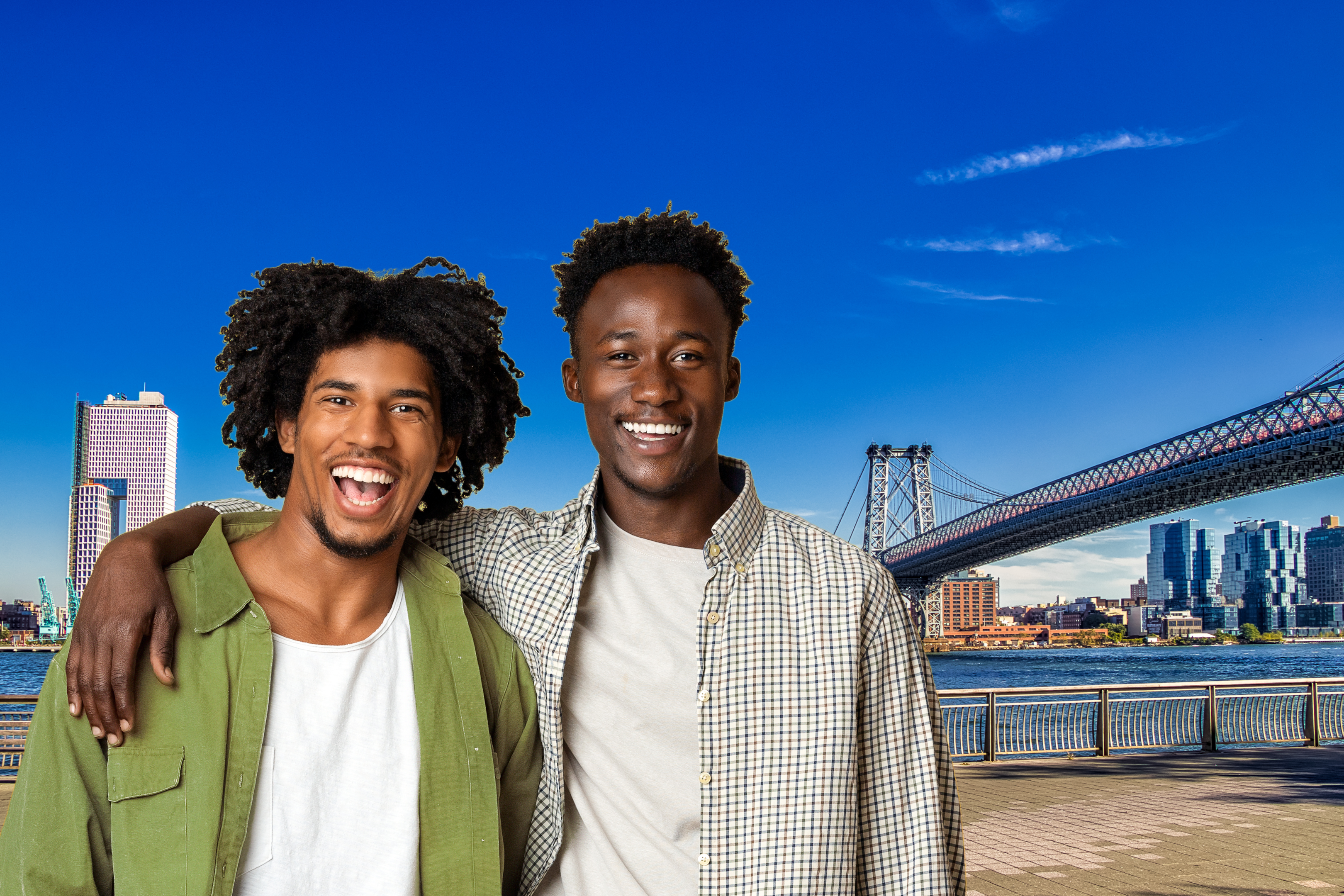
Frequently Asked Questions
1. What is the Difference Between a Marriage Counselor and a Therapist?
There’s no difference between a marriage counselor and a marriage therapist, but there’s a big difference between a couples therapist and a general therapist who occasionally works with couples.
Most therapists receive little to no formal training in couples therapy—despite 80% offering it in private practice (Lebow, 2016). In contrast, therapists trained in evidence-based models like the Gottman Method and Emotionally Focused Therapy (EFT) achieve higher success rates (Johnson et al., 2019).
-
Approximately 80% of therapists in private practice conduct couples therapy, yet most have never taken a dedicated course or completed supervised training in this area1.
-
None of the major mental health professions require specific coursework in couples therapy as part of their standard curriculum
Therapist training and expertise play a crucial role. Studies show that specialized training in couples therapy leads to better outcomes
💡 Why it matters: Poorly trained therapists may unintentionally worsen conflicts, while certified couples therapists use proven methods to help partners reconnect, communicate effectively, and rebuild trust.
Want to learn more about the training gap in couples therapy and how to find the right therapist? Stay tuned for our upcoming in-depth blog!
2. How Long Does Gay Couples Therapy Take?
The length of couples therapy depends on the couple’s needs, level of distress, and commitment to the process. While some couples see progress in 8–12 sessions, more complex cases typically require 20+ sessions or ongoing maintenance therapy for lasting change.
What to Expect in Couples Therapy Duration
As expert couples therapists at Loving at Your Best, we integrate Schema Therapy, Emotionally Focused Therapy (EFT), the Gottman Method, and Cognitive Behavioral Therapy (CBT) to tailor treatment to each couple, often following this structure:
🔹 Initial Assessment (3–4 sessions): Relationship history, individual perspectives, and treatment planning.
🔹 Intensive Therapy Phase (20–30 sessions): Weekly sessions focused on deep-seated patterns, emotional connection, and communication skills.
🔹 Maintenance & Follow-Up (6–12 sessions): Monthly check-ins to reinforce progress and prevent relapse.
For highly distressed couples, couples therapy may span 6 months to over a year, depending on:
✅ The severity of conflicts and emotional wounds
✅ The presence of infidelity, trauma, or personality disorders
✅ The couple’s willingness to apply therapy strategies between sessions
💡 Want a deeper dive? Sign up for our eTips newsletter to get an expert breakdown on:
🔹 What makes some couples progress faster than others?
🔹 How to maximize therapy success and avoid setbacks?
🔹 When to transition from weekly therapy to maintenance sessions?
👉 Join the eTips newsletter now for exclusive insights into making couples therapy work for you!
3. What if my partner isn’t open to therapy?
It’s common for one partner to be hesitant. Here’s how you can approach it:
-
Frame couples therapy as relationship enrichment, not blame. Emphasize that therapy is about strengthening your connection, not about “fixing” one person.
-
Consider starting with an individual session. Many partners become more open once they see its benefits firsthand.
-
Discuss online therapy options. Some partners feel more comfortable starting virtually rather than coming into an office.
💡 Remember: Resistance often comes from fear or uncertainty. Keeping the conversation non-judgmental and open increases the chances of your partner joining you.
4. Does insurance cover gay couples therapy?
Many therapy providers, including Loving at Your Best, operate as out-of-network providers, which means:
-
We provide superbills you can submit to your insurance for possible reimbursement.
-
Coverage varies by plan, so call your provider and ask about out-of-network mental health benefits.
-
Some HSA/FSA accounts can also be used to cover therapy costs.
💡 Tip: Always contact your insurance carrier for your plan specifics before booking an appointment, since every policy can differ dramatically.
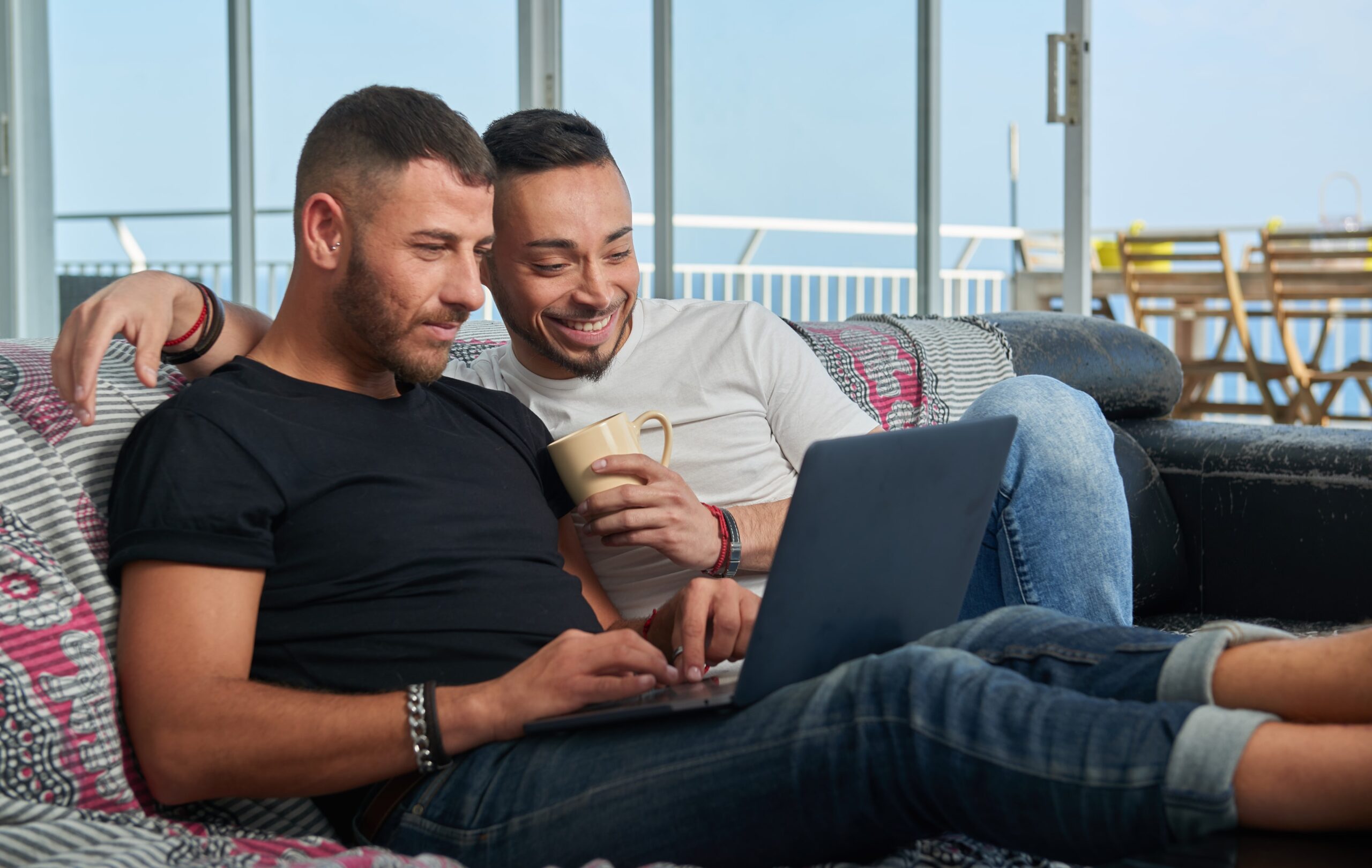
5. Is online gay couples therapy as effective as in-person therapy?
Absolutely! Research-backed studies confirm that online therapy is just as effective as in-person therapy, and in some cases, even more effective due to consistency and accessibility.
A 2024 study in the Journal of Marital and Family Therapy found that online therapy using the Gottman Seven Principles method produced results equal to in-person therapy.
🔹 Benefits of online therapy for LGBTQ couples:
✅ Convenience – No commuting, making therapy easier to schedule.
✅ More privacy – Discuss personal topics without worrying about being seen in a waiting room.
✅ Closer face-to-face connection – Video sessions often bring partners even closer together than sitting across a therapist’s office.
💡 Bottom Line: The key isn’t the setting—it’s finding a skilled LGBTQ-affirming therapist who understands your relationship.
6. What are the benefits of online couples therapy for LGBTQ couples?
Online therapy eliminates common barriers that prevent LGBTQ+ couples from seeking therapy, including:
✅ Convenience – No commuting, no sitting in traffic—just therapy from the comfort of your home.
✅ More Privacy – No need to worry about running into coworkers or family members in the waiting room.
✅ Flexibility – Perfect for New York couples with demanding schedules who need more options.
✅ Increased Comfort – Many couples feel more at ease discussing personal issues in their own space rather than in an office.
💡 Want to know how to maximize success in online therapy? Sign up for our eTips newsletter for an in-depth guide!
7. How do I know if I need gay couples therapy?
If you’re asking this question, it might already be time. Couples therapy isn’t just for relationships in crisis—it’s for any couple looking to strengthen their connection, improve communication, and resolve ongoing issues before they become dealbreakers.
Here are some signs that gay couples therapy might be right for you:
🔹 Recurring arguments that don’t get resolved
🔹 Feeling distant or disconnected from your partner
🔹 Trust issues, including infidelity or secrecy
🔹 Struggles with intimacy—emotionally or physically
🔹 Challenges balancing work, family, or personal goals
🔹 External pressures (family, societal expectations, discrimination) affecting your relationship
💡 Therapy is a proactive tool—not just a last resort. If you want to invest in your relationship, therapy can help you build a foundation that lasts a lifetime.
8. Can gay couples therapy help if we have an open relationship?
Yes! Therapy isn’t about judging relationship structures—it’s about helping you create clarity, trust, and agreementsthat work for both partners.
For couples in open or polyamorous relationships, therapy can help:
-
Define boundaries and expectations so both partners feel secure.
-
Address jealousy, emotional needs, and communication strategies.
-
Prevent misunderstandings that could damage the relationship.
💡 At Loving at Your Best, we work with monogamous and non-monogamous LGBTQ couples to strengthen trust, enhance communication, and ensure that both partners feel valued.
9. What if we’re already on the brink of breaking up? Can therapy still help?
Absolutely! Many couples come to therapy feeling hopeless, but therapy often reveals new possibilities for repair and reconnection.
If you’re feeling like separation is the only option, therapy can help:
-
Process past hurts and understand where things went wrong.
-
Rebuild trust and repair emotional distance.
-
Decide whether to heal or separate amicably, with clarity and compassion.
💡 Even if therapy doesn’t “save” the relationship, it can help both partners gain closure and avoid repeating painful patterns in future relationships.
10. How do we choose the right therapist for gay couples therapy?
Choosing the right therapist is essential to your success. Look for:
✅ Specialization in LGBTQ+ relationships – Not just a checkbox, but real expertise.
✅ Therapists trained in research-backed methods, like the Gottman Method, EFT, or CBT.
✅ A style that resonates with both partners – You should both feel comfortable and understood.
💡 At Loving at Your Best, we work extensively with LGBTQ+ couples. All of our therapists have extensive experience helping same-sex couples build trust, improve communication, and navigate challenges unique to LGBTQ relationships.
11. What percentage of Americans support gay marriage?
As of the latest polls, 67% of Americans support gay marriage, which means wedding planners are staying busy, and love continues to win—even if public opinion occasionally takes a dip.
And with ongoing fight forLGBTQ+ rights, we’ll do all we can to ensure that number is likely to grow, so that rainbow weddings remain in high demand!
12. What percent of Gen Z supports gay marriage?
A whopping 69% of Gen Z supports gay marriage, proving that they may be the most fabulous generation since glitter was invented!
So, if you ever need a wedding planner, just call a Gen Z-er—they’ve got the aesthetic, the playlists, and the TikTok hacks to make your big day unforgettable.
13. What is the importance of affirmative therapy in gay marriage counseling?
Affirmative therapy in gay marriage counseling is like a VIP lounge for LGBTQ couples. It’s a space where your identity is understood from the start. No awkward moments, no need to educate your therapist about LGBTQ issues, and no outdated assumptions. Instead, you just real, effective therapy designed for same-sex relationships.
It’s all about creating a judgment-free space where both partners feel heard, understood, and supported. Love can thrive without the extra baggage of societal bias.
14. How does counseling help in building trust and intimacy in gay relationships?
Counseling is like relationship CrossFit—it strengthens your bond, increases emotional flexibility, and builds trust and intimacy through consistent effort.
For gay and lesbian couples, therapy tackles internalized homophobia, past relationship wounds, and societal pressures that may affect emotional closeness. Through structured exercises, couples learn to communicate better. They repair past ruptures, and rediscover the emotional and physical connection that brought them together in the first place.
Trust and intimacy? You’ll be serving that up like a five-star Michelin meal—with a side of emotional security.
15. How do I know if I need gay couples therapy?
If you’re asking this question, it might already be time. Couples therapy isn’t just for relationships in crisis. It’s for any couple looking to strengthen their connection, improve communication, and resolve ongoing issues before they become dealbreakers.
Here are some signs that gay couples therapy might be right for you:
🔹 Recurring arguments that don’t get resolved
🔹 Feeling distant or disconnected from your partner
🔹 Trust issues, including infidelity or secrecy
🔹 Struggles with intimacy—emotionally or physically
🔹 Challenges balancing work, family, or personal goals
🔹 External pressures (family, societal expectations, discrimination) affecting your relationship
Therapy is a proactive tool—not just a last resort. If you want to invest in your relationship, therapy can help you build a foundation that lasts a lifetime.
16. What should I expect in my first gay couples therapy session?
The first session is all about getting to know you as a couple—your relationship history, challenges, and what you want to achieve in therapy. Expect to:
✅ Talk about your relationship dynamics and what’s been working (or not).
✅ Identify your biggest challenges and what you’d like to improve.
✅ Start setting goals for therapy—whether it’s rebuilding trust, improving communication, or reigniting passion.
No judgment, no pressure—just a safe space where both partners can feel heard and understood.
17. How do I choose the right therapist for gay couples therapy?
Finding the right therapist is like finding the perfect dance partner—you need someone who understands your rhythm and won’t step on your toes.
Here’s what to look for:
✅ Specialization in LGBTQ relationships – A therapist who understands the unique dynamics of same-sex relationships.
✅ Evidence-based approaches – Look for therapists trained in EFT, the Gottman Method, or CBT, which are proven to help couples succeed.
✅ Cultural competence – Therapy should be a safe space where you don’t have to explain or justify your identity.
At Loving at Your Best Gay Couples Therapy, all of our therapists specialize in LGBTQ couples, ensuring that you and your partner feel supported from day one.
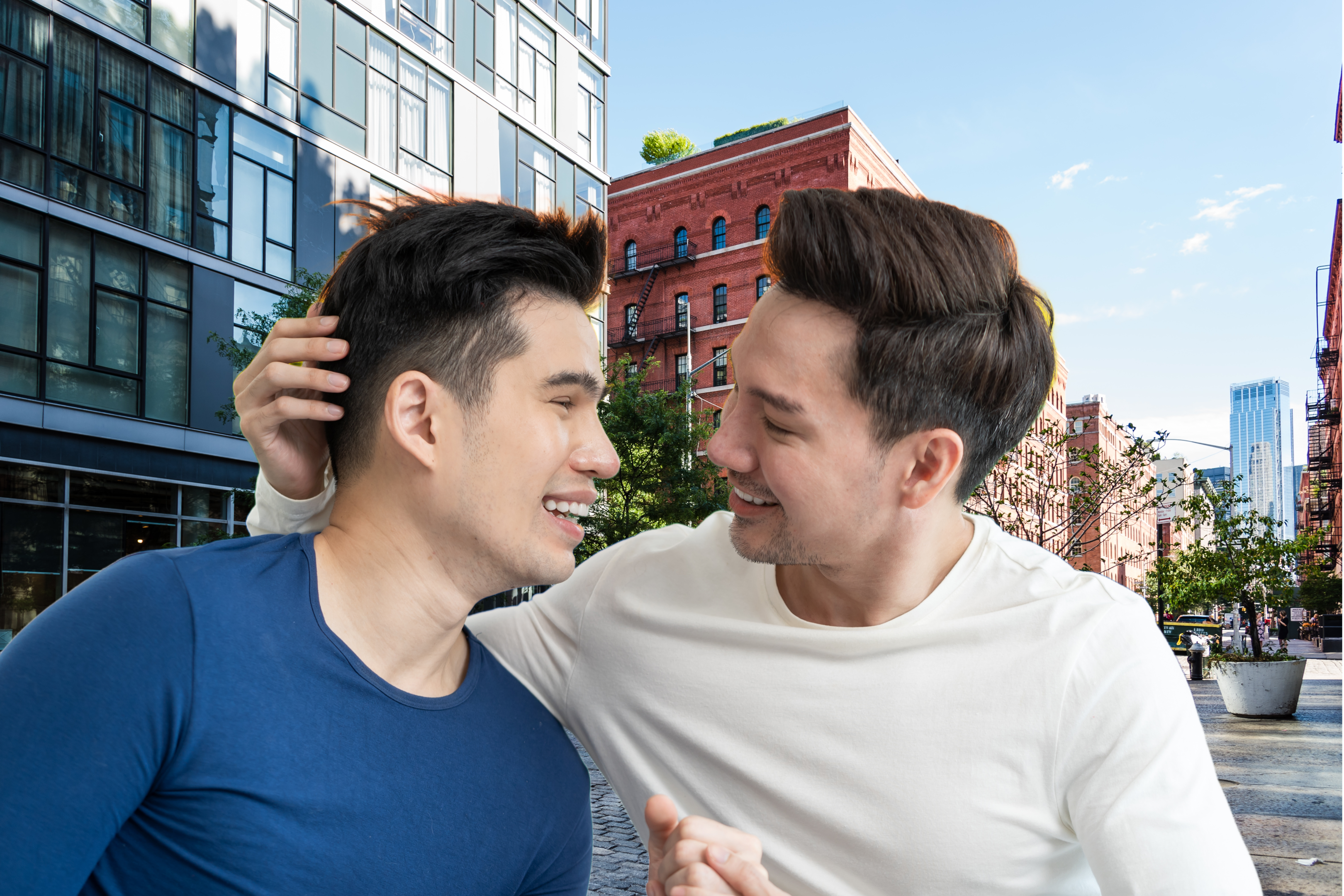
Final Thoughts: Get the Answers You Need for Your Relationship
Still have questions about gay couples therapy?
👉 Sign up for our eTips newsletter for expert insights, relationship advice, and updates on new research about LGBTQ couples therapy!
📅 Ready to start? Book a session today and take the first step toward a stronger, healthier relationship.
Final Thoughts
Gay couples therapy isn’t just about solving problems. I about strengthening your bond, deepening trust, and building a relationship that truly thrives.
Choose online therapy for its convenience and consistency, and do the most important step: get started. We also offer a gay men’s group therapy with Jon Prezant! Find out more here: GAY MENS GROUP
Want expert relationship insights delivered straight to your inbox? Sign up for our eTips newsletter for exclusive advice and success stories. Plus, you get and expert guidance on maximizing your relationship success.
Take the first step—schedule a session today and start building a relationship that lasts.


